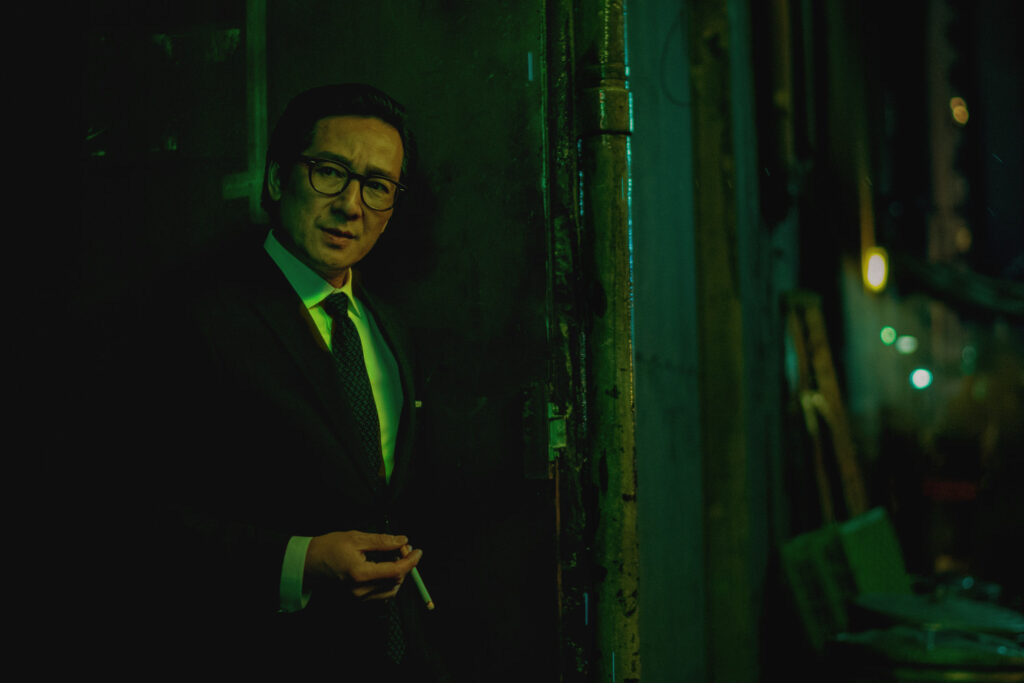On Kindness
a necessary strategy
Everything Everywhere All at Once is a fantastic movie. Set across the multiverse, the movie blends genres to tell this absurd story about a dysfunctional family.
There is a lot to talk about the movie: from the excellent martial arts choreography, musical score and camera work, the absurd use of comedy, to its wonderful cast of characters. The film also weaves in philosophical themes into this family drama.
There is a particular line of dialogue in the movie that I loved and it made the whole movie for me. It takes place during the Wong Kar-Wai homage scene in the third act of the movie. Waymond (played by Ke Huy Quan) has a heart-to-heart moment with Evelyn (played by Michelle Yeoh), and he talks about his philosophy. The whole scene happens in a dingy but gorgeously lit alleyway somewhere in Hong Kong and the dialogue plays out in Mandarin.
Waymond, throughout the movie comes off as meek, and seemingly clueless. He admits that he is aware that Evelyn and her father may have considered him as weak. In contrast to how Evelyn perceives herself as a fighter. Waymond argues that he too is a fighter. He fights, but with kindness.
He then says something profound: "When I choose to see the good side of things, I am not being naive. It is strategic and necessary."
Being kind is strategic and necessary. God, that is so true, and the game theory proves it.
Game theory is an application of mathematics to model strategic interactions. Social scientist use it to study human behaviour in competition or cooperation or both — like in the games we play. It has been used to model 'games' like sports, dating and nuclear warfare.
There is a popular problem in game theory known as the Prisoner's Dilemma. The game involves two thieves being interrogated in separate rooms and no contact with the other. Their options are to keep quiet (cooperate) or snitch (defect). It is a dilemma because the math shows that both thieves will choose to defect, to snitch on the other guy even though the best outcome is for them to stay quiet. No honor amongst thieves, eh?
This paradox comes from the payoff structure. To each thief, it is best for them to choose to defect regardless of what the other guy would choose to do. However, both their individual payoff from defecting is much less than what they could have gotten if they instead chose to cooperate. It goes to show that getting people to cooperate in real life situations is difficult too.
So how does this problem get resolved?
In the book The Evolution of Cooperation, Rob Axelrod details how the likelihood of players meeting again, interacting again, facilitates cooperation. The more likely they are to meet again, the more likely they are to cooperate. There is a strategy that optimises the payoff for such a repeated/iterated game. It is known as the Tit-for-Tat. It’s like a modified version of the Golden Rule. Do unto others as they have done unto you.
Based on that principle of reciprocity, Tit-for-Tat implies that we cooperate as long as the other guy does, and to defect once he defects, indefinitely. Though we don't want to get stuck fighting with the same guy over and over again, do we?
So choosing to cooperate, or by being kind to someone else, seems like a strategic choice to break this dilemma, especially if we are expecting multiple interactions in the future.
While I do think it makes sense that we might be a little kinder, or more courteous with someone if we think we might run into them again (like if you work in an office). I think that it is true, to certain extent.
However, I think that it is kindness that facilitates the repeated interactions. Not the other way around.
I like working with good people. Even if I am not in close physical proximity with those good folks, I might be inclined to get to know them better and maybe return that kindness (i.e. reciprocity). This way, a precedence and reputation for good behaviour is established too.
Moreover, choosing to be kind is not so much choosing to just see the good in people. That is just naive. There's a lot of vile individuals out there. Sure, there's a lot to lose by blindly trusting some stranger, but we stand to gain much more too. Choosing to be kind is giving someone a chance to do some good and a chance to respond in kind.
We lose more by not trusting anyone to do good than we do if we choose to trust them but only to have that trust broken. Because there are plenty of great people out there too. Kindness does not always beget kindness, but you can create a greater possibility for it.
Being kind is strategic and necessary.
Everything Everywhere All At Once is a film that deserves all the applauds and awards its getting. It poses some philosophical problems as it sets up the conflicts between characters in its story, and set out to resolve those conflicts as the story unfolds. Which were done beautifully. That takes a certain mastery and confidence in the filmmaker's craft.
They even got the game theory right.


